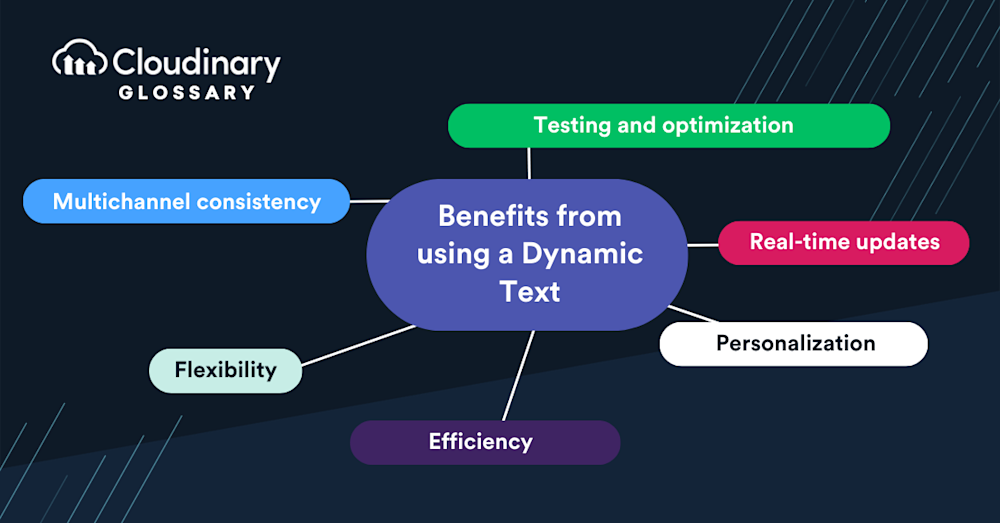What Is Dynamic Text?
Dynamic text is a powerful digital marketing and content creation technique that automatically customizes text content based on specific user data or contextual information. This technology enables you to deliver tailored content to your audience, ensuring that the information displayed is relevant, engaging, and highly targeted. With dynamic text, you can create a more personalized user experience, increasing user satisfaction, higher conversion rates, and improved customer loyalty.
Why Is Dynamic Text Important?
Dynamic text is crucial in modern digital marketing and content creation, enabling businesses to deliver personalized and relevant content to their audience. The importance of dynamic text lies in its ability to:
- Boost engagement. By presenting tailored content, dynamic text captures users’ attention and encourages them to interact with your website or marketing materials.
- Increase conversion rates. Personalized content resonates better with users, leading to higher click-through rates, form submissions, and overall conversions.
- Improve customer retention. Dynamic text helps foster strong connections with your audience by showing that you understand their needs and preferences, increasing the likelihood of repeat visits and long-term customer loyalty.
- Enhance user experience. By displaying content that is relevant and specific to individual users, dynamic text contributes to a seamless and satisfying browsing experience.
Incorporating dynamic text into your digital marketing strategy can significantly improve your overall results and help you build lasting relationships with your audience.
Examples of Dynamic Text
Dynamic text can be utilized in various ways across different digital marketing channels and content types, enhancing user experience and personalization. Some common examples of dynamic text usage include:
- Email marketing. Personalizing subject lines and email content based on user preferences, browsing history, or past purchases to increase open rates and engagement.
- Landing pages. Customizing headlines, calls-to-action, or offers based on the user’s location, referral source, or the specific marketing campaign they arrived from.
- E-commerce websites. Displaying personalized product recommendations, tailored promotions, or localized pricing and shipping information based on user data.
- Search engine marketing. Adjusting ad copy in real-time to match user search queries, increasing ad relevance and click-through rates.
- Dynamic content in blog posts or articles. Inserting personalized content, such as the user’s name or recently viewed items, within the body of a blog post or article to create a more engaging reading experience.
By incorporating dynamic text into these various applications, businesses can create more personalized and impactful content, driving better results and fostering stronger connections with their audience.
Closing The Book
By leveraging the flexibility of dynamic text, marketers and content creators can significantly improve user engagement, conversion rates, and customer loyalty. As digital marketing continues to evolve, the importance of dynamic text will only grow, and those who successfully incorporate it into their strategies will be better positioned to connect with their audience and drive meaningful results. Embrace the power of dynamic text and unlock the full potential of your digital marketing efforts, creating lasting relationships with your customers and enhancing your overall online presence.
Check Out Our Tools That You May Find Useful:



